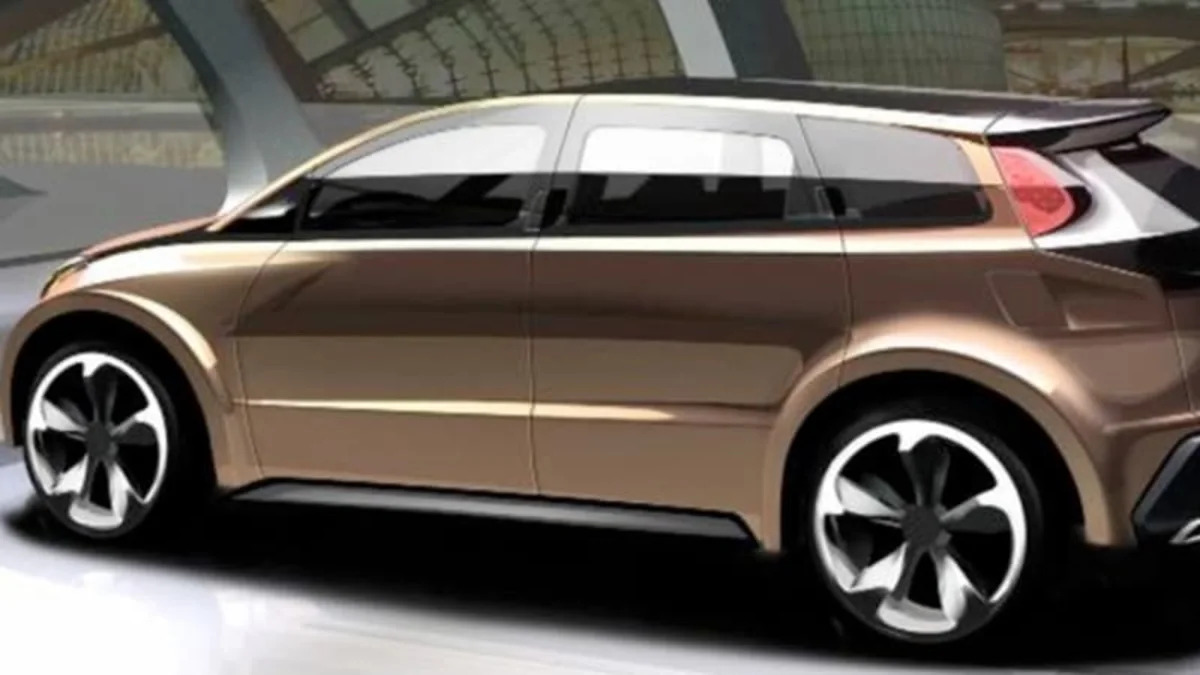As if the agile, featherweight sports cars engineered by Lotus weren't feathery enough, the British car builder has undertaken a research project to forecast how advanced technologies in weight reduction can benefit drivers in the coming decade. The study looked ahead to possibilities for building future vehicles and focused on all the components used to construct a vehicle -- except for the powertrain. The procedure Lotus used was to take a new Toyota Venza crossover and benchmark it, thoroughly disassembling and weighing everything in the stock vehicle. It then devised alternative parts and components with an emphasis on saving weight.
The result was a "2020 Venza," a vehicle in which some 400 parts that made up the structure were reduced to a more efficient and economical 211, and overall weight was cut by about 350 pounds. Lotus accomplished this primarily by replacing steel with aluminum and magnesium. Inside, driver and passenger modules replaced the instrument panel, and high-tech foam was employed to cut the weight of the seats. Overall, Lotus achieved a 38 percent reduction in vehicle mass, excluding the powertrain, while estimating that the costs for this vehicle would increase only three percent.
Other reworked elements in the Lotus vision involved downsizing the chassis and suspension bits; using lighter-weight, copper-clad aluminum wiring for the electrical systems; and investigating new glazing materials.
Lotus says its research has showed that even by 2017 automakers could shave curb weight by about 21 percent, using current mass reduction technologies, improved materials and component integration, all while still being assembled using existing facilities.
In a statement, Dr. Robert Hentschel, director of Lotus Engineering, said that "lightweight architectures and efficient performance are just two of our core competencies and we are delighted to have completed this study with input from the National Highway Traffic Safety Administration and the U.S. Environmental Protection Agency to provide direction for future CO2 reductions. We believe that this approach will be commonplace in the industry for the future design of vehicles."
Indeed, Lotus claims that according to U.S. Department of Energy estimates, weight savings of the sort it has demonstrated can produce fuel economy improvements of over 20 percent.
The full report can be found here.
The result was a "2020 Venza," a vehicle in which some 400 parts that made up the structure were reduced to a more efficient and economical 211, and overall weight was cut by about 350 pounds. Lotus accomplished this primarily by replacing steel with aluminum and magnesium. Inside, driver and passenger modules replaced the instrument panel, and high-tech foam was employed to cut the weight of the seats. Overall, Lotus achieved a 38 percent reduction in vehicle mass, excluding the powertrain, while estimating that the costs for this vehicle would increase only three percent.
Other reworked elements in the Lotus vision involved downsizing the chassis and suspension bits; using lighter-weight, copper-clad aluminum wiring for the electrical systems; and investigating new glazing materials.
Lotus says its research has showed that even by 2017 automakers could shave curb weight by about 21 percent, using current mass reduction technologies, improved materials and component integration, all while still being assembled using existing facilities.
In a statement, Dr. Robert Hentschel, director of Lotus Engineering, said that "lightweight architectures and efficient performance are just two of our core competencies and we are delighted to have completed this study with input from the National Highway Traffic Safety Administration and the U.S. Environmental Protection Agency to provide direction for future CO2 reductions. We believe that this approach will be commonplace in the industry for the future design of vehicles."
Indeed, Lotus claims that according to U.S. Department of Energy estimates, weight savings of the sort it has demonstrated can produce fuel economy improvements of over 20 percent.
The full report can be found here.


Sign in to post
Please sign in to leave a comment.
Continue